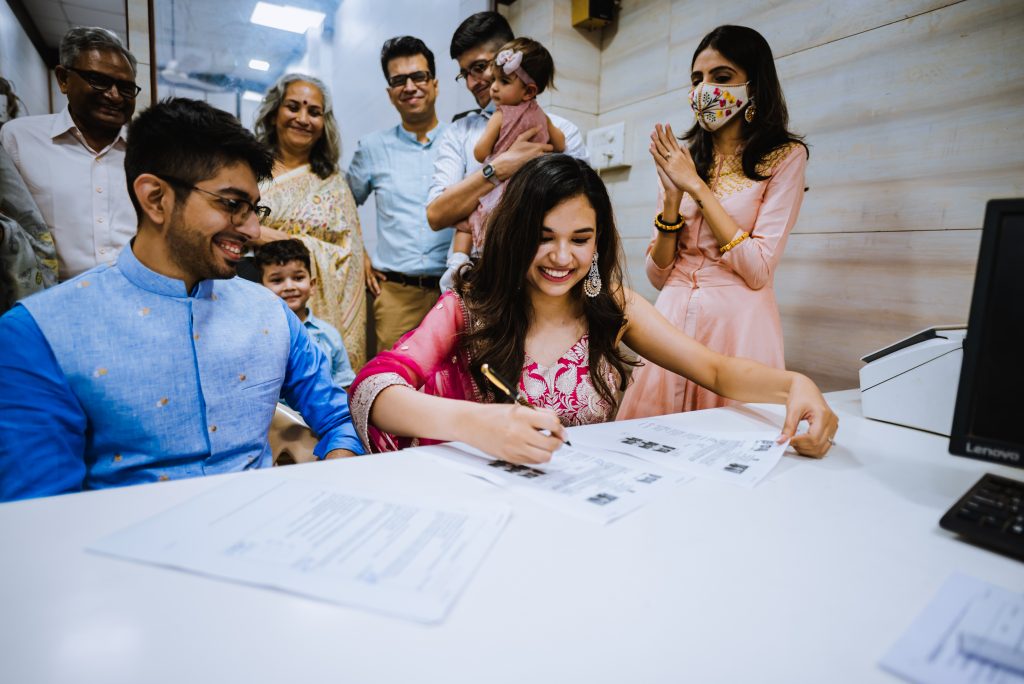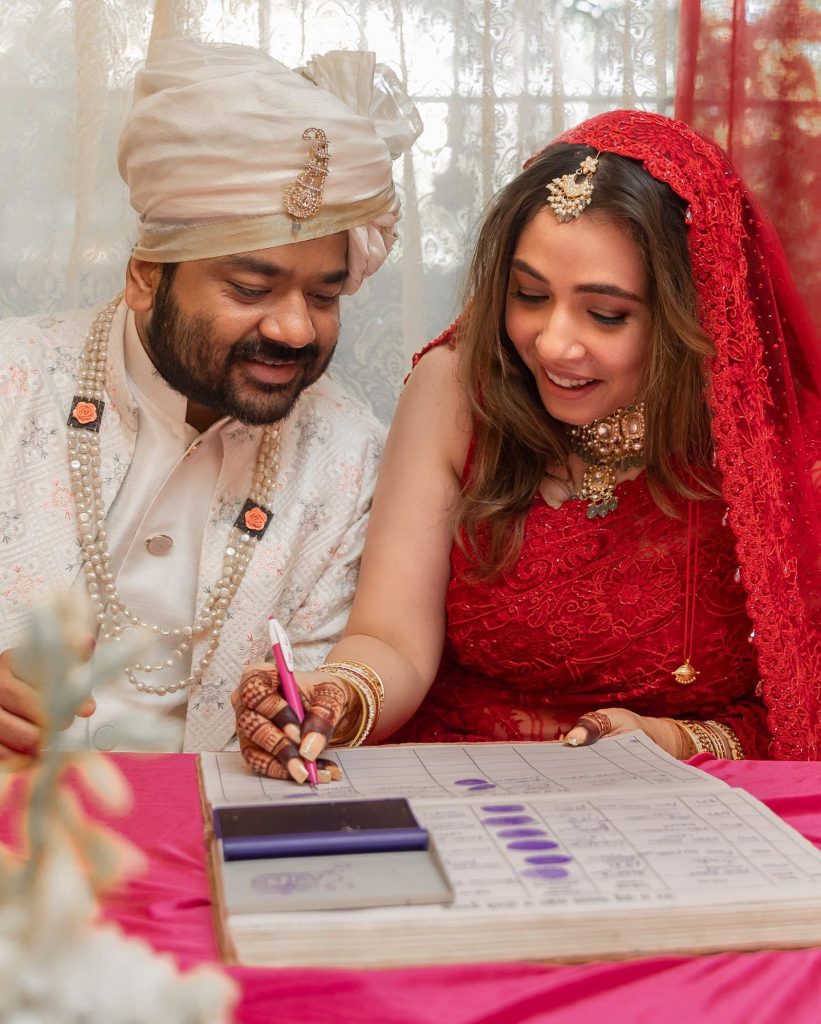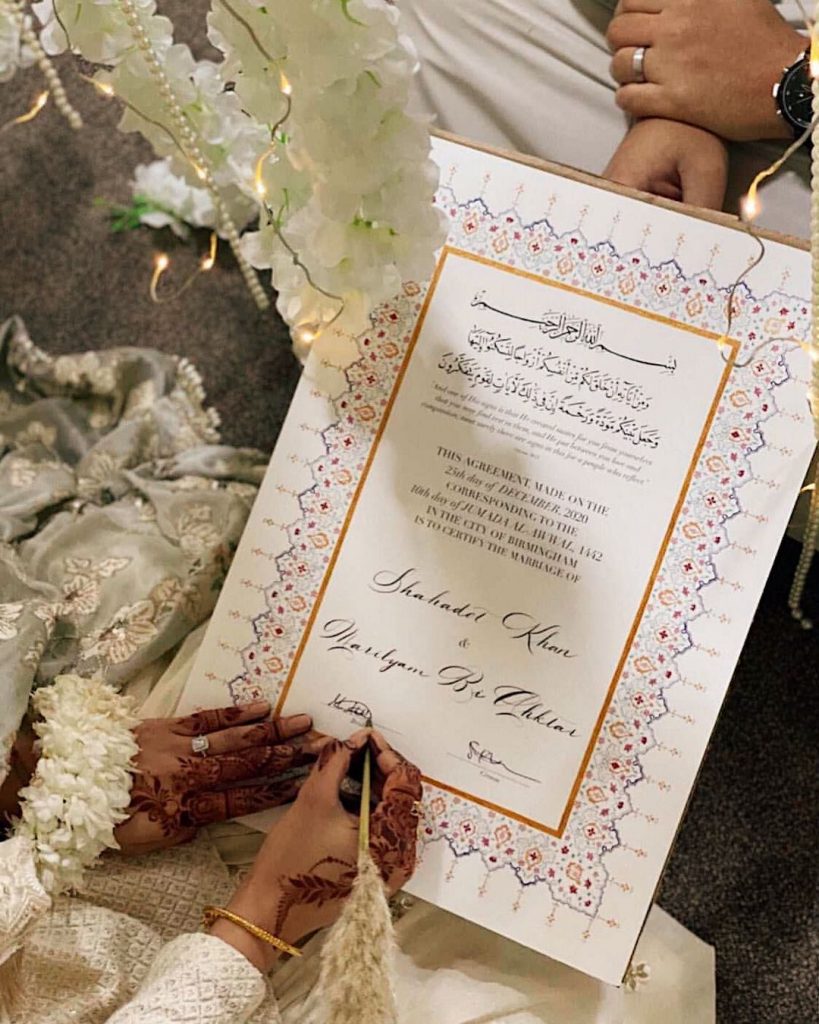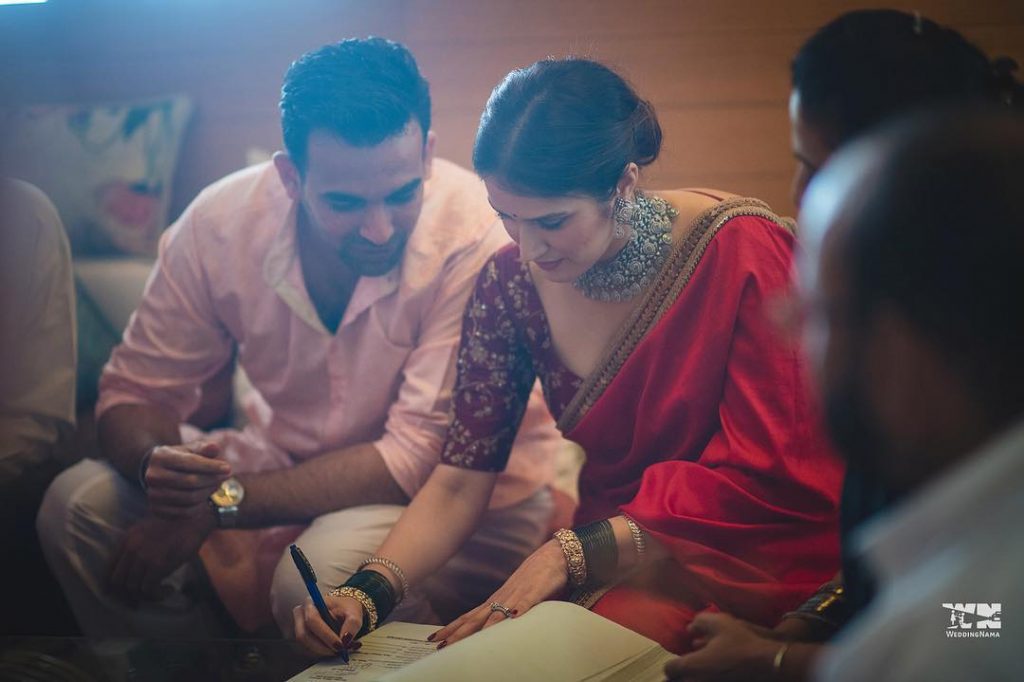India’s diverse cultural and religious brings in various laws and acts governing the institution of marriage based on religion, community, and personal preferences Each community in India is governed by its specific personal laws, while others may opt for a secular, civil marriage. And, alongside these, the Special Marriage Act provides a civil option for individuals irrespective of their faith. Intending to uphold the rights of individuals, often presents challenges due to variations in provisions and interpretations, especially concerning women’s rights and equality. So, ShaadiWish is here to help you understand these marriage laws and acts in India to recognize the rights and responsibilities that come with marriage.
Couples Can Get Married Under Four Marriage Laws And Acts In India. Let’s Check Out Everything From Eligibility To Process:
What Is A Marriage Certificate And Why Is It Necessary?
A marriage certificate is an official document issued by the government of India to verify the legal union of a couple. In fact, it is a vital document that provides legal security and protection to both partners. And, it is advisable to register your marriage as soon as possible after the wedding to avoid any potential issues in the future.
Why Is It Necessary?
While traditionally, marriages were primarily social and religious events, the legal significance of a marriage certificate has grown over the years. Also, it offers several crucial benefits:
- Legal Recognition: It provides official proof of the marriage, which is essential for various legal procedures.
- Protection of Women’s Rights: The Supreme Court of India mandated marriage registration to safeguard women’s rights.
- Property and Inheritance Rights: A marriage certificate is crucial for property and inheritance claims.
- Divorce Proceedings: In case of a divorce, a registered marriage simplifies the process.
- Passport and Visa Applications: Many countries require a marriage certificate for visa and passport applications for spouses.
- Bank Accounts and Loans: Joint bank accounts and loans often require a marriage certificate.
- Child-related Matters: It is essential for child custody, guardianship, and adoption proceedings.

Also, from process to fees: step-by-step guide about court marriage in India
Let’s Check Out The Four Types Of Marriage Laws In India:
1. Hindu Marriage Act 1955
The Hindu Marriage Act, 1955 is a crucial law in India that governs marriage, divorce, and related issues for Hindus, including Buddhists, Jains, and Sikhs. Also, the law provides a uniform framework for Hindu marriages. So, it was enacted to provide a uniform legal framework, replacing diverse and often conflicting traditional practices.
Eligibility
To be eligible for marriage under this Act, both parties must be:
- Hindu, Buddhist, Jain, or Sikh by religion
- At least 21 years old for the groom and 18 years old for the bride
- Not within prohibited degrees of relationship
Applicability
The Hindu Marriage Act, 1955, is applicable across India, including after the abrogation of Article 370, in Jammu and Kashmir. So, it covers:
- Hindus by religion, including followers of the Arya Samaj and Brahmo Samaj.
- Individuals who are Hindu by birth, or who are not governed by any other personal law.
Conditions For A Valid Marriage
For a marriage to be valid under the Act:
- Monogamy: Neither party should have a living spouse at the time of marriage.
- Mental Capacity: Both parties should be of sound mind and capable of giving consent.
- Prohibited Relationships: The couple should not fall within the prohibited degrees of relationship unless their customs allow it.
- Sapinda Relationship: The parties should not be in a close-blood relationship unless permitted by custom.
Other conditions include:
- Mutual consent of the parties
- Observance of customary rituals, including Saptapadi (seven steps around the holy fire)
- Registration of the marriage (mandatory)
Process of Marriage:
- Engagement (optional): A preliminary agreement between families.
- Fixing the date: Mutual decision on the wedding date.
- Wedding ceremony: Conducting the marriage rituals as per customs.
- Registration: Submitting the marriage certificate application to the concerned registrar within 30 days of the marriage
Importance:
- Legal Recognition: Provides legal status to Hindu marriages.
- Women’s Rights: Protects the rights of Hindu women.
- Social Reform: Encourages social reforms by setting age limits and prohibiting certain marriages.
- Uniformity: Ensures uniformity in marriage laws for Hindus.

2. Muslim Marriage Law (Shariat) Application Act, 1937
Muslim personal law, primarily derived from the Quran and Sunnah (the teachings and practices of Prophet Muhammad), governs marriages among Muslims. In fact, unlike the Hindu Marriage Act, which is a codified law, Muslim personal law is largely uncodified, varying across different Muslim communities and regions.
Key Aspects of Muslim Marriage Law
- Nikah: The Islamic term for marriage, it is considered a civil contract between a man and a woman. Moreover, both parties must give their free and voluntary consent.
- Wali: A male guardian (usually the father or a close male relative) is traditionally required to give consent for the marriage of an unmarried woman.
- Mahr: A mandatory gift from the groom to the bride, it is a form of financial security for the wife.
- Muta Marriage: A temporary marriage contract practiced among Shia Muslims, where the duration of the marriage is predetermined.
- Polygamy: While permitted under Islamic law, it is subject to strict conditions and is not widely practiced.
- Divorce: There are several forms of divorce in Islamic law –
Talaq: The husband can divorce his wife by pronouncing ‘Talaq’ (repudiation). However, recent legal developments have outlawed ‘Triple Talaq’ where a man could instantly divorce his wife by saying ‘Talaq’ three times in one sitting.
Khula: A wife can seek divorce by offering to return her Mehr or a part of it to the husband.
Mubarat: A mutual agreement between husband and wife to dissolve the marriage.
- Maintenance (Nafkah): The husband is obligated to provide financial support to the wife during the marriage and for a certain period after divorce (Iddat).
- Custody: Generally, the mother is given custody of young children, with the father being responsible for their financial maintenance.
Eligibility
- Legal Age: The legal age for marriage under Muslim law is generally recognized as the age of puberty, which is assumed to be 15 years. However, child marriage is prohibited under the Prohibition of Child Marriage Act, of 2006.
- Consent: Both parties must give their free and informed consent to the marriage. If either party is a minor, the consent of the guardian (Wali) is required.
- Prohibited Relationships: Marriages between close blood relatives (e.g., siblings, parents, and children) are prohibited.
Applicability
The Muslim marriage laws apply to all individuals who identify as Muslims in India, regardless of their sect (Sunni or Shia). However, specific practices may vary between different communities and regions.
Challenges and Reforms
The uncodified nature of Muslim personal law has led to several challenges, including:
- Discrimination against women: Issues related to polygamy, divorce, maintenance, and custody rights have been raised.
- Lack of uniformity: Variations in interpretations of Islamic law across different communities have led to inconsistencies.
- Child marriage: Despite legal prohibitions, child marriage continues to be a problem in some Muslim communities.
Process of Marriage
A Nikah ceremony typically involves a marriage contract, the presence of witnesses (two male witnesses or one male and two female witnesses), and the payment of Mehr. The Nikah is conducted by a Qazi (Islamic judge) or any authorized person.

3. Christian Marriage Act, 1872
The Christian Marriage Act, 1872 is a legal framework in India that governs the marriages of individuals professing the Christian faith. So, it was enacted during the British colonial period and continues to regulate Christian marriages, ensuring that they are conducted in accordance with the law.
Applicability of the Christian Marriage Act, 1872
- The Act applies to marriages where either or both parties are Christians.
- It is applicable throughout India, except in the state of Jammu and Kashmir (though post the abrogation of Article 370 in 2019, central laws have started to apply there as well).
- The Act covers all Christian denominations, including Catholics, Protestants, and other sects.
Eligibility and Conditions
- Religion: At least one of the parties must be Christian.
- Age: The groom must be at least 21 years old, and the bride must be at least 18 years old.
- Consent: Both parties must give free and voluntary consent to the marriage without coercion or undue influence.
- Monogamy: The Act strictly prohibits polygamy.
- Mental Capacity: Both parties must be of sound mind and capable of giving valid consent.
- Witnesses: Two reliable witnesses are required for the marriage ceremony.
- Prohibited Relationships: Marriages between close blood relatives are prohibited, except in cases where local customs permit such unions.
Solemnization of Marriage
- A Christian marriage must be solemnized by a person licensed under the Act, such as a minister of religion, a clergyman of the Church of England, or a person authorized by a recognized church.
- The marriage can be conducted in a church or any other place authorized for the solemnization of Christian marriages.
- The marriage must be performed in the presence of at least two witnesses and must follow the customary rites of the denomination to which the parties belong.
Registration of Marriage
- After the marriage is solemnized, it must be registered under the Act. Also, the registration serves as official proof of marriage.
- The marriage registrar or the minister of religion conducting the marriage is responsible for ensuring that the marriage is properly recorded in the marriage register.
Divorce
- Divorce for Christians in India was originally governed by the Indian Divorce Act, 1869, which allowed for divorce on specific grounds such as adultery, cruelty, and desertion. However, the Act was amended in 2001 to make it more gender-neutral and to provide additional grounds for divorce.
- The grounds for divorce now include mutual consent, adultery, conversion to another religion, unsoundness of mind, desertion, cruelty, and communicable venereal diseases.
Maintenance and Custody
- The Act also provides for the maintenance of the wife and children after divorce. The court can grant maintenance based on the financial condition of the husband.
- Custody of children is generally decided based on the best interests of the child, with both parents having the right to seek custody.

4. Special Marriage Act,1954
The Special Marriage Act, 1954, is a significant piece of legislation in India that provides a civil marriage for people of any religion or faith. Moreover, it offers a secular alternative to marriages governed by personal laws.
Key Features
- The Special Marriage Act offers a secular and simplified process for marriage.
- It provides equal rights and protection to both spouses, regardless of their religious or social background.
- The Act is crucial for inter-faith and inter-caste marriages.
- Secular Marriage: The Act allows people from any religion or caste to marry, irrespective of their personal laws.
- Monogamy: The Act strictly prohibits polygamy.
- Divorce: It provides for divorce on grounds similar to other marriage laws, such as adultery, cruelty, desertion, etc.
Conditions & Eligibility
- Age: The groom must be at least 21 years old, and the bride must be at least 18 years old.
- Consent: Both parties must give free and voluntary consent to the marriage without coercion or undue influence.
- Monogamy: The Act strictly prohibits polygamy.
- Sound mind: Both parties must be of sound mind to understand the nature and consequences of marriage.
- No existing marriage: Neither party should be already married.
- No prohibited relationship: The parties should not be within the prohibited degrees of relationship as defined by the Act.
Applicability
- Any Indian citizen: Regardless of religion, caste, or creed can marry under this Act.
- One Indian citizen and one foreign national: If one partner is an Indian citizen and the other is a foreign national residing in India, they can also marry under this Act.
- It provides a legal framework for marriages between people of different religions or for those who prefer a civil marriage without any religious ceremony.
Process Of Registering Under Special Marriage Act,
- Notice of Marriage: Both parties must give a notice in writing to the Marriage Officer of the district where at least one of them has resided for at least 30 days.
- Publication of Notice: The Marriage Officer publishes the notice on the office premises for public inspection.
- Objections: Any person can object to the marriage within 30 days of the notice publication.
- Inquiry: If objections are raised, the Marriage Officer conducts an inquiry.
- Solemnization: If no valid objections are raised or if the objections are dismissed, the marriage can be solemnized at the Marriage Officer’s office or any other place agreed upon by the parties.
- Registration: The Marriage Officer issues a marriage certificate, which is the legal proof of the marriage.
Divorce
- The Act provides grounds for divorce, including adultery, desertion, cruelty, incurable diseases, and mutual consent. Also, either spouse can file for divorce under the Act.
- The Act also provides for annulment of marriage and judicial separation.
Importance
- Secularism: It promotes secularism by providing a common platform for marriages, irrespective of religious beliefs.
- Women’s Rights: It offers more protection to women by providing clear legal rights and remedies.
- Inter-faith Marriages: Facilitates marriages between people from different religions.
- Uniformity: Provides a uniform law for marriage, unlike personal laws which vary across religions.

And, here are the steps & benefits of legally changing your last name after marriage.
Also, Stay tuned to ShaadiWish for more details!













Comments are closed.